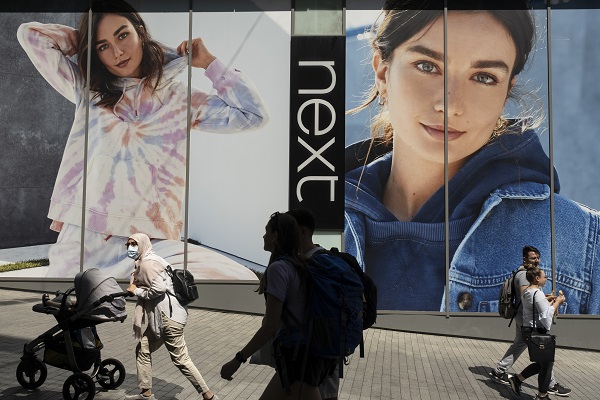FTSE 100 retailer Next raises profit outlook
4th August 2022 09:04
by Richard Hunter from interactive investor
Warmer weather and demand for formal clothing boosts retailer, which sounds a warning on inflation and consumer spending.

Two things are close to becoming expected from Next (LSE:NXT) updates – an upgrade to profit forecasts, along with a cautionary outlook to temper over-exuberance.
For the latest quarter, full price sales were up by 5%, equating to an additional £50 million ahead of previous guidance, leading next to upgrade its profit expectations for the full year by 10% to £860 million, which itself would represent an increase of 4.5% versus the previous year.
- Read about how to: Open a Trading Account | How to start Trading Stocks | Top UK shares
As noted in the last update, the pendulum has swung away from online growth, which has temporarily stalled, to a return to traditional store shopping. The group does not necessarily expect this swing to persist, noting that compared to pre-pandemic levels, the trend remains intact and comparisons with this time last year are skewed by a return to normality after the removal of lockdowns.
Similarly, the trend away from pandemic favourites such as sportswear and home, towards lines such as formalwear now that planned social occasions have returned is also growing. This may also explain in part the return to in-store shopping as consumers take more time to consider a range of outfits for an important upcoming social event.
In terms of a unique comparative year which Next expects unlikely to last, comparisons with pre-pandemic behaviour are perhaps more relevant. As such, online full-price sales are still 44% ahead of those levels and retail sales 4.7%, both marking sustained progress over the intervening period.
The continued growth has also enabled shareholder returns to be maintained as the company runs a tight ship on its policy. In the financial year so far, Next has completed share buybacks totalling £224 million. At the same time, the historic yield of 1.9%, turbocharged by previous special dividends to 5.9%, allows the group to fluctuate between the two forms of return subject to the company’s own specific benchmarks, which measure the most effective way of enabling returns to shareholders.
Much as the company remains one which has a firm hand on the tiller, its customary cautionary outlook is also in evidence. The company does not expect the “weather windfall” that drove sales higher to repeat in the second half of the year, while the general inflationary outlook is likely to persist. A deteriorating UK economy has resulted in several examples of slowing retail sales and, while some of the competition may have been removed over the last few years as smaller retailers have gone to the wall, the propensity of consumers to spend on more discretionary items is likely to drop as the financial pressure on individual spending increases.
These concerns have been a constant overhang for the retail sector in recent times, and Next is no exception. The share price has declined by 15% over the last year, as compared to a gain of 4.5% for the wider FTSE 100, although over a two-year period a hike of 22% demonstrates longer-term resilience. With this in mind, the market consensus of the shares as a buy reflects ongoing optimism in Next’s continuing ability to under-promise and over-deliver.
These articles are provided for information purposes only. Occasionally, an opinion about whether to buy or sell a specific investment may be provided by third parties. The content is not intended to be a personal recommendation to buy or sell any financial instrument or product, or to adopt any investment strategy as it is not provided based on an assessment of your investing knowledge and experience, your financial situation or your investment objectives. The value of your investments, and the income derived from them, may go down as well as up. You may not get back all the money that you invest. The investments referred to in this article may not be suitable for all investors, and if in doubt, an investor should seek advice from a qualified investment adviser.
Full performance can be found on the company or index summary page on the interactive investor website. Simply click on the company's or index name highlighted in the article.